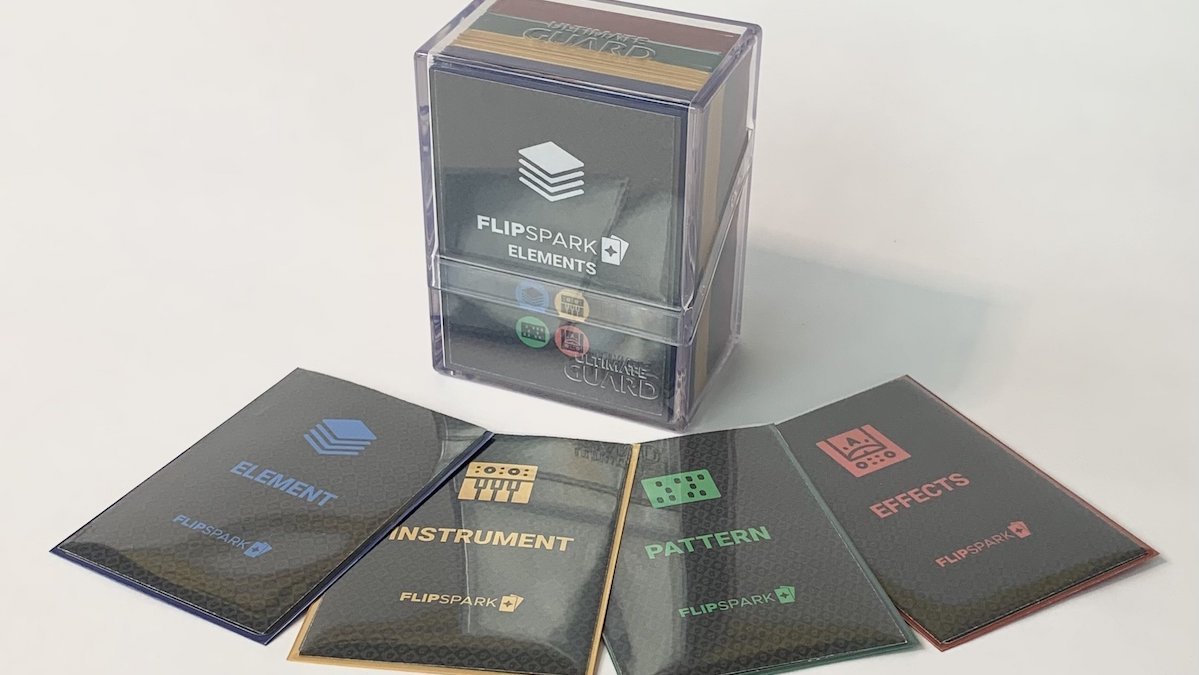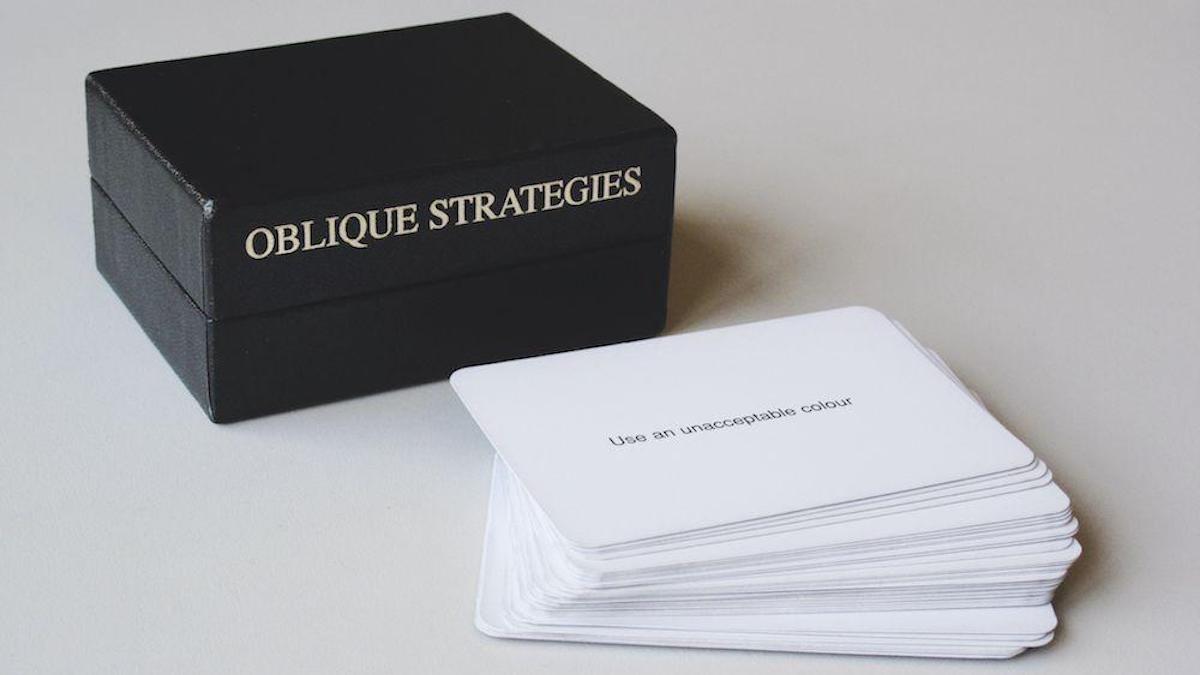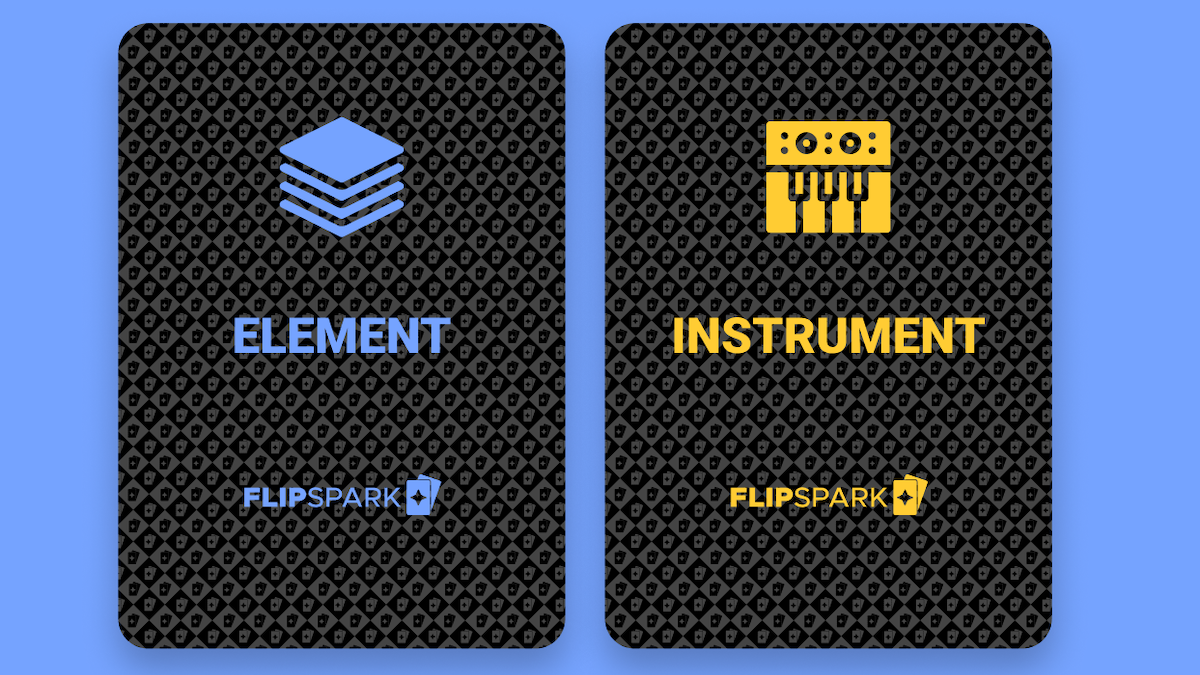"A staggering number of ideas to experiment with" : a new set of chance composing cards could be the 2025 update to Brian Eno's Oblique Strategies
Pick a card, any card, create a tune, any tune…

If you need help with your music productions, you could, of course, turn to AI, and use the very latest dystopian technology to help you along with your creative process. Yes, why not use a technology that threatens to wipe out humanity just because you can't be bothered to think for yourself?
Alternatively, maybe you could go for a tried and trusted, human approach, and dish out a set of playing cards instead? We'll opt for this route, thank you very much, and fortunately, there's a new set of cards at the casino called Flipspark Elements waiting to shuffle our chances.

Chance music – or Aleatoric composition – has been with us for centuries: Mozart allegedly used dice to come up with some of his musical decisions and, more recently, the likes of Karlheinz Stockhausen, John Cage, and Pierre Boulez dabbled in the random nature of chance in their compositional processes.
Yet it's probably Brian Eno (above) who is most well known for using chance in music production, coming up with a set of cards called Oblique Strategies which would help him smash through a brick wall of writer's/producer's block.

Oblique Strategies contains prompts like "use fewer notes", "be dirty" or "mute and continue", plus our favourite: "take a break". So brilliant is the concept, that the set of 100 cards has been doing the rounds for half a century now, first helping Eno on his 1975 album, Discreet Music, and has been used by countless producers since.
You could, of course, take the idea and come up with your own strategies for a new set of cards: "eat cake", "watch TV", "go and do something less boring instead", or, yes, even "get AI to do it". Or you could try out a new set of 64 cards called Flipspark Elements which promises to update the chance concept for the 21st-century composer and deliver "a staggering number of ideas to experiment with".

Like a 'normal' set of cards, you get four suits, this time called Element, Instrument, Pattern and Effect, which help you break your tune down into its important parts. Element, for example, allows you to construct the fundamental parts of a song; Instrument determines the sound sources for the Elements; Pattern prompts melody and beat styles; and finally Effect not surprisingly suggests effects per Element.
Get the MusicRadar Newsletter
Want all the hottest music and gear news, reviews, deals, features and more, direct to your inbox? Sign up here.
Some cards handily have both white or black parts so you can apply them to either melodies or beats. By randomly selecting cards from each suit, the theory is that you should be able to create entire tunes with instruments, melodies, structure and effects determined by chance so you don't have to put any stresses on that poor Gen Z brain of yours, and make any decisions yourself.
Seriously though, it does look like a very decent set of tools to experiment with, particularly the effects, and of course, like the original Oblique Strategies (of which Flipspark also offers a version) you can dip into the concept as much or as little as you like.
The best part is that a set of 64 cards costs just $13, and is currently reduced to $9, although as a digital download, you will have to print them out for yourself – think you can manage that?
Get more info from the Flipspark website and in the video below.
Andy has been writing about music production and technology for 30 years having started out on Music Technology magazine back in 1992. He has edited the magazines Future Music, Keyboard Review, MusicTech and Computer Music, which he helped launch back in 1998. He owns way too many synthesizers.
Who Wants To Live Forever? The composer still creating music from beyond the grave
“How daring to have a long intro before he’s even singing. It’s like psychedelic Mozart”: With The Rose Of Laura Nyro, Elton John and Brandi Carlile are paying tribute to both a 'forgotten' songwriter and the lost art of the long song intro











